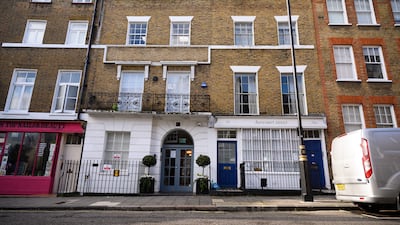British house prices saw their biggest increase in almost 15 years in September ahead of the end of a tax break for buyers, with expectations prices will continue to increase amid limited supply.
Prices rose by 1.7 per cent from August, the biggest monthly increase since February 2007, adding £4,400 to the value of an average property, which now sits at a record high of £267,587, according to the Halifax House Price Index.
In annual terms, house price growth also accelerated to 7.4 per cent from 7.2 per cent in August, after slowing in each of the previous three months.
“While the end of the stamp duty holiday in England – and a desire amongst homebuyers to close deals at speed – may have played some part in these figures, it’s important to remember that most mortgages agreed in September would not have completed before the tax break expired,” said Russell Galley, managing director at Halifax.
This shows that multiple factors played a significant role in house price developments during the pandemic, he added, including the “race for space” as people changed their preferences and lifestyle choices amid a series of lockdowns.
“Looking at price changes over the past year, prices for flats are up just 6.1 per cent, compared to 8.9 per cent for semi-detached properties and 8.8 per cent for detached," Mr Galley said.
“This translates into cash increases for detached properties of nearly £41,000 compared to just £6,640 for flats.”
Britain's housing market accelerated at high speed after the end of the country's first coronavirus lockdown last year as people working more from home sought bigger properties and Chancellor of the Exchequer Rishi Sunak unveiled a stamp duty holiday on the first £500,000 of a purchase, giving buyers a saving of up to £15,000.
While this tapered down to the first £250,000 on July 1, the tax break ended at the end of last month.
With prices skyrocketing since the stamp duty bonus was unveiled, with average house prices about £28,270 higher than June last year, buyers now face a tax bill of almost £3,400 for a typical home against the £2,300 they would have paid before the tax break was introduced.
Regionally, Wales continues to record the strongest house price inflation of any UK region or nation, with annual growth of 11.5 per cent in September, while Scotland saw growth of 8.3 per cent.
The weakest performing regions are all located in the South and East of England, while Greater London only saw annual growth of one per cent.
Looking ahead, Mr Galley said the backdrop of rising pressures on the cost of living and impending increases in taxes, might see demand soften in the months ahead, with some industry measures already indicating lower levels of buyer activity.
“Nevertheless, low borrowing costs and improving labour market prospects for those already in employment are likely to continue to provide support,” he said.
“Perhaps the biggest factor in determining the future of house prices remains the limited supply of available properties. With estate agents reporting a further reduction in the number of houses for sale, this is likely to underpin average prices – though not the recent rate of price growth – into next year.”


